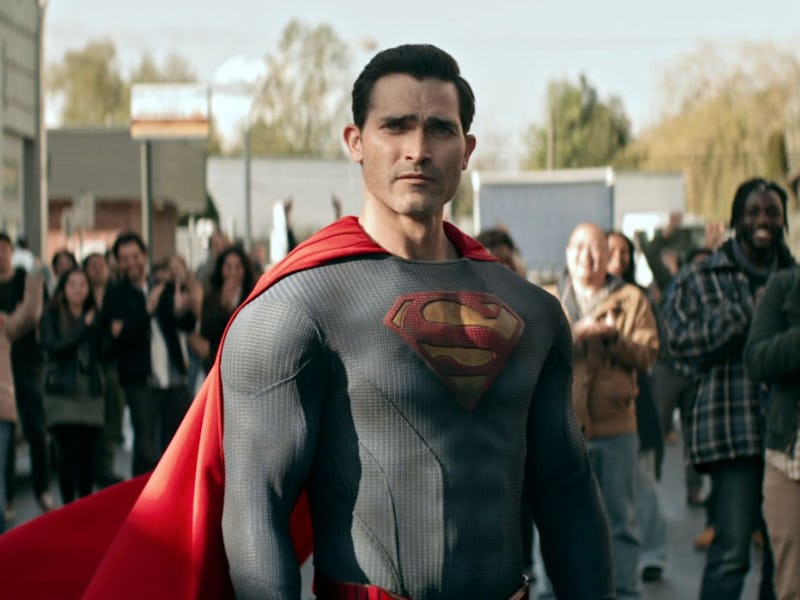A Bittersweet Goodbye To The CW DC Universe
Thanks for the good times!

Somehow, without anyone thinking about it too hard, there have been nearly continuous TV shows featuring DC comics superheroes, running on the same network for over two decades. But as of December 2, 2024, the CW’s super-reign has come to an end. Starting with Smallville in 2001 and ending with Superman & Lois, there has been a shocking stretch of several distinct superhero TV series. Although the so-called “Arrowverse” began in 2012 with the launch of the CW series Arrow, one can consider the dawn of this era much earlier.
For nearly the entire 21st century, some kind of DC Comics superhero TV show has been airing on the network we now know as the CW. This means that for most of this century, there has always been some kind of DC superhero show that we could watch. This seldom-discussed touchstone in the landscape of geek entertainment is now over. The finale of Superman & Lois doesn’t just represent the end of that series, this is also the ending of the Arrowverse, which, retroactively, is a shared superhero world that created a multiverse much better than anything feature-film version of The Flash clumsily attempted in 2023. Let’s take a moment to pour one out for the Smallville/Arrowverse era, and stop to consider what might replace it.
If you’ve not been watching Superman & Lois on the CW, and you call yourself a Superman fan, you very much should. In 2021, the same year as the Snyder Cut of Justice League, the events of Superman & Lois gave us a much more nuanced, as well as comic-book-accurate version of Kal-El and his immediate family. While the conceit of Superman & Lois is somewhat unique — that Superman and Lois move back to Smallville to raise their sons — the basic essence of how Superman ought to behave was perfectly captured by Tyler Hoechlin throughout this series.
Originally a guest star in Supergirl Season 2 in 2016, Hoechlin became the incumbent version of Superman in the ever-expanding Arrowverse. In the 2019-2020 CW version of Crisis on Infinite Earths, Hoechlin’s Superman appeared in the same crossover miniseries as fellow former Supermen actors Brandon Routh (Superman Returns) and Tom Welling (Smallville.) Basically, this is a version of what Marvel did with Spider-Man: No Way Home in 2021, but on a much more epic scale.
Welling, of course, deserves some credit for bravely stepping into the role of Clark Kent in the 2001 teenage drama Smallville back in 2001. Without him and without the success of that series, it feels possible, and even likely, that the Arrowverse might not have happened later. Originally airing on the WB, that network became the CW after various changes with Warner Bros and CBS, which means that retroactively, Smallville was the OG superhero CW series.
Because the CW/Arrowverse run began with Smallville and ended with a Superman series also set in the town of Smallville, it’s tempting to just focus on the adventures of TV Superman over the past 23 years. But that would be doing the rest of the Arrowverse a disservice. The incredible run of Grant Gustin’s version of The Flash, combined with the impressive timey-wimey Legends of Tomorrow and Supergirl gave countless DC fans a steady meal of their favorite characters, rendered in a respectful way that, at the time, seemed unlikely on the big screen.
The CW superheroes went hard. They were too good for this world.
Sure, aspects of Arrow come off a bit soapy today. Bu, some of it holds up. The Flash holds up. Black Lighting is a series that is better than you remember it, as is Batwoman. The point is, for a very long time now, DC fans have been eating very well thanks to the CW. It wasn’t always perfect, and fans will debate for years to come about which show was best (probably the Flash?) but the fact that this phenomenon happened at all is truly a minor miracle. In the 1990 DC fans were lucky to get one season of The Flash in the past decade and change. The CW shows have been nothing short of a renaissance.
CW’s suite of DC shows may not have ever been as hip as the MCU, nor as headline-grabbing as the fledgling DCEU movies, but they were unique. Whatever happens next for DC shows on TV will certainly be different, and perhaps even better. But for now, this quirky — and impressively prolific superhero era — deserves your attention, your respect, and maybe a little bit of love.